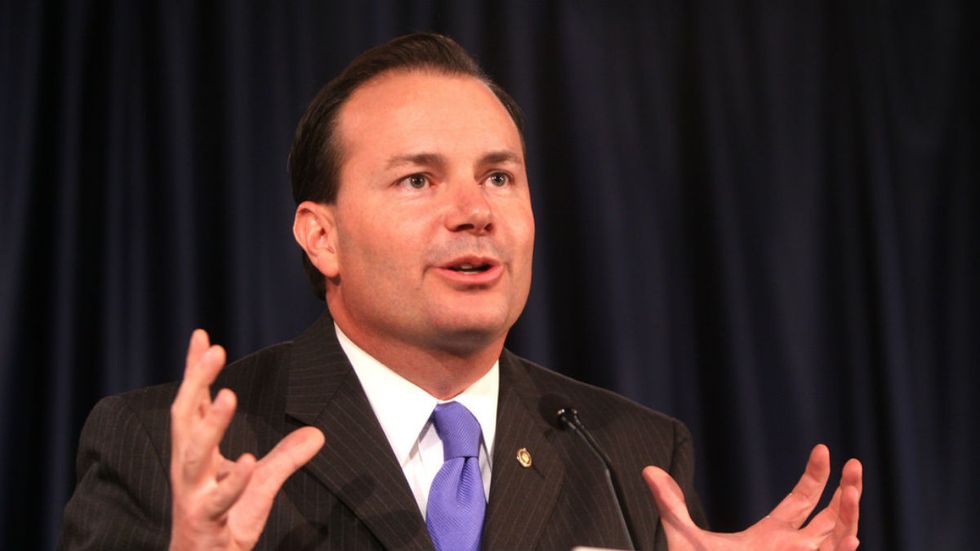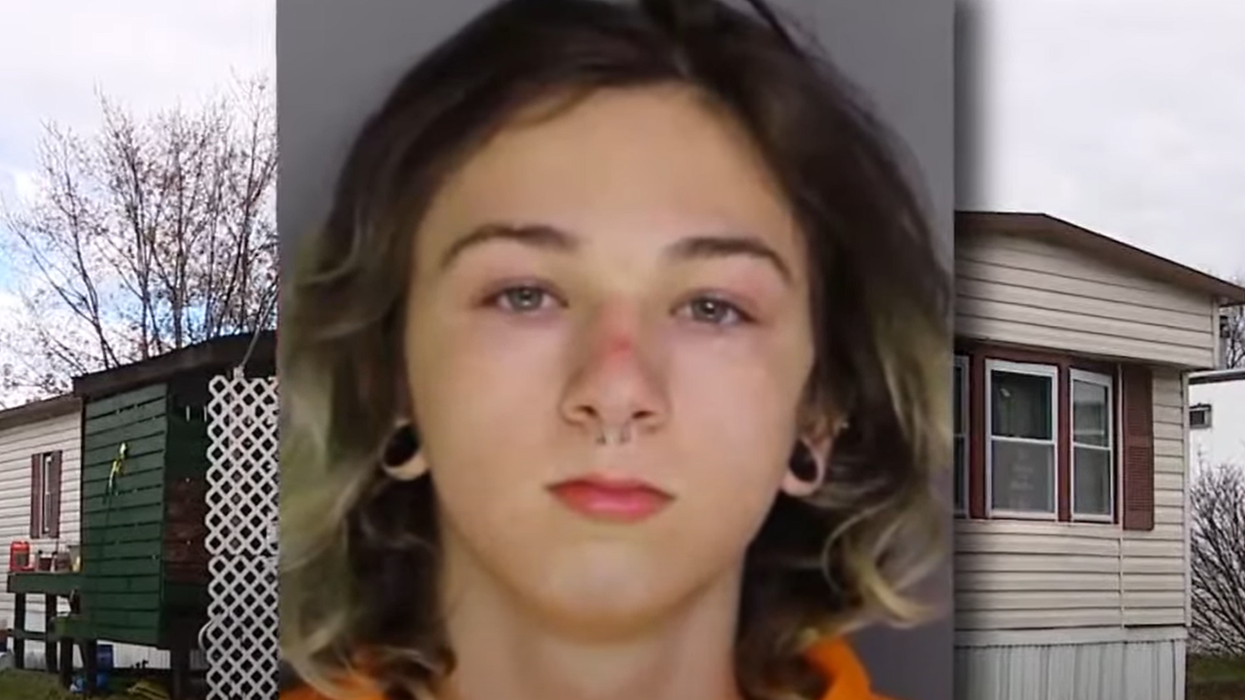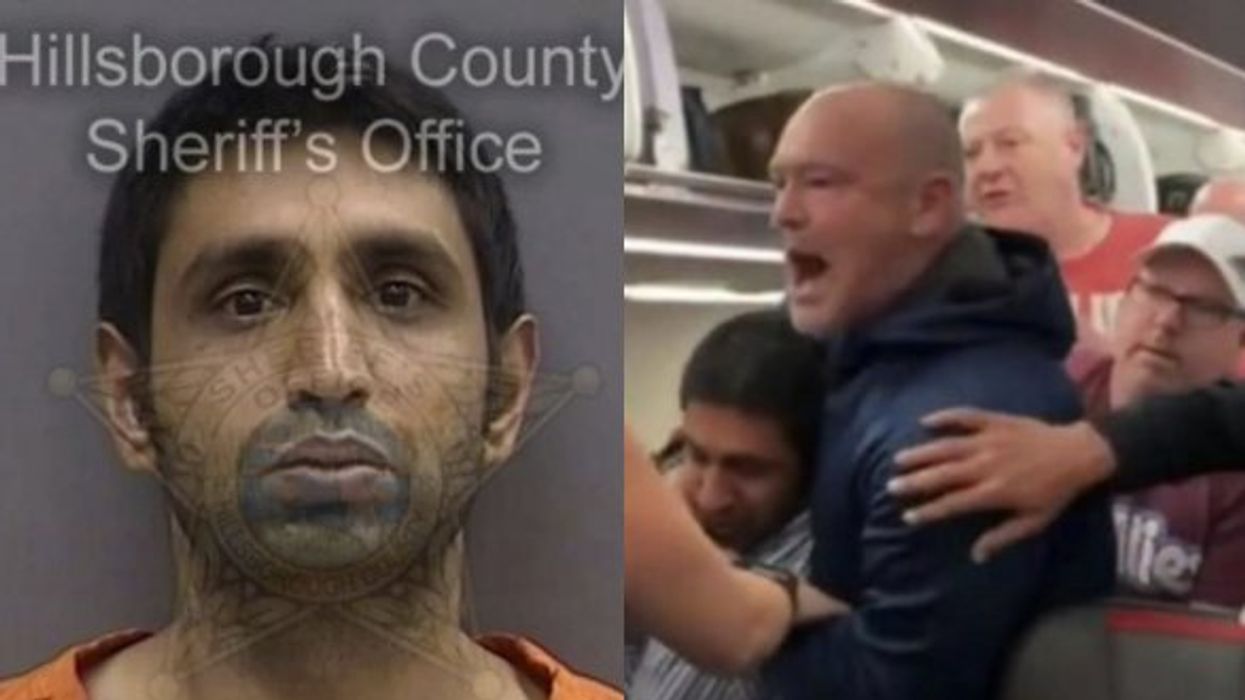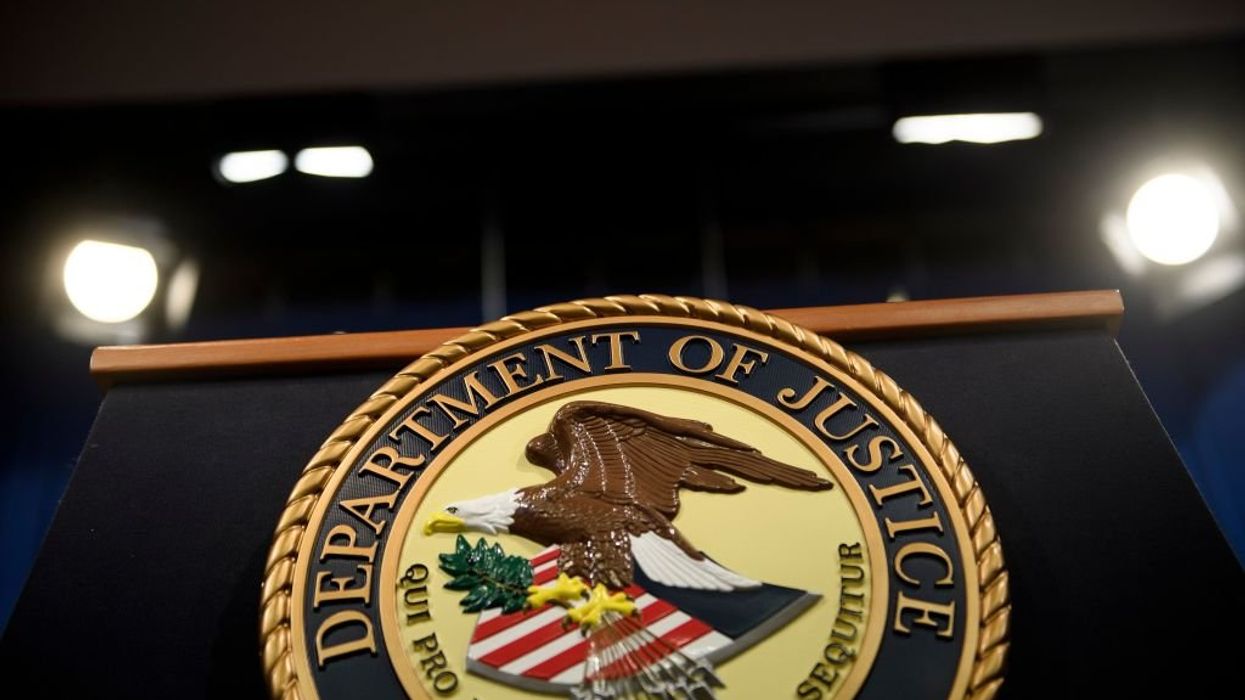
© 2024 Blaze Media LLC. All rights reserved.
We don’t spend enough time with our families, our neighbors, and our fellow citizens; one U.S. senator is embarking on a project to change that.
It’s no secret that American society is hurting right now, and relations between fellow citizens appear to be more divided than ever
The Social Capital Project, announced earlier this week, is an initiative started by Sen. Mike Lee, R-Utah to “investigate the evolving nature, quality, and importance of our associational life.” according to a press release.
“Today, Americans face a wide variety of challenges in our era of tumultuous transition,” reads a statement accompanying the project’s inaugural report. “We are materially better off in many ways than in the past. But despite this real progress, there is a sense that our social fabric has seen better days.”
In a phone interview with Conservative Review, Lee discussed the origins of the project, and how he hopes that the information it reveals will help shape public policy and understanding of the problems facing our divided and disconnected country.
“Congress spends a lot of time studying … a number of things” like economic factors that “can easily be measured,” Lee explains. “And it occurred to me, gradually over the last few years, that there are a number of things that are occurring that are worth considering in one way or another.”
“There are a number of cultural changes in our country that need to be monitored and need to be taken into account,” he adds.
While there are some positive, encouraging indicators like increased rates of time spent volunteering, Lee says, a lot of the other indicators are “distressing,” and span a number of different areas of civil involvement from across the board.
A quick perusal of the statistics contained in 81-page report’s initial findings are both are incredibly troubling, but wholly unsurprising to anyone who has been tracking these trends over the last few years.
In short, we don’t spend as much time with our neighbors, and we don’t trust them nearly as much as we used to. The intact family is crumbling on several measurable indicators, and what ones are left intact are growing more and more neglected by their members. The communities that have traditionally sprung up around churches and synagogues are suffering as well, as organized religion in the United States is facing a multi-generational decline. Even the non-religious civic clubs like labor unions and charitable organizations are on the decline.
What we live is a more isolated life where many no longer enjoy the fruits of the kinds of social institutions that are meant to form the buffer between individuals and the state. Edmund Burke called these institutions the “little platoons” that make up a society. Our founders envisioned a republic – from the Latin for “public thing.”
“Government can’t create institutions of civil society.” And when it tries to create them, it either fails or causes more problems. But government can destroy them, and it can certainly weaken them.”
And it often does.
“A lot of times people assume, when there’s a problem, government has to address it,” Lee told me, “and if government has to address it, it has to be the federal government.”
“But the more you have the federal government stepping in … you can step on institutions of civil society you can weaken them. You can cause them to atrophy,” he adds.
Without these voluntary, institutional buffers, these engines of society, things start to go bad.
“So, when we centralize everything in a distant, powerful, wealthy, entity like the federal government, whose only tool at the end of the day is force … you cause people to feel detached from the solution,” he continues. “The further removed people are or the further removed people feel from a particular solution or a particular program, the less likely they’re going to be to get involved in it.”
And those now-weakened associations are “part of the magic” of what makes America function in the first place.
“If you read Alexis de Tocqueville and his early account of American life and why it is that self-government works so well here, in a way that it hadn’t worked in France and a way that it hadn’t worked elsewhere,” Lee tells me, “it had everything to do with upward economic mobility and institutions of civil society and free markets working together.”
One of the hopes that Lee has for the project is for lawmakers to be able to better diagnose where policies get in the way of these institutions and ensure that what the government is doing isn’t causing unnecessary harm to the very things our republic needs to sustain itself.
One such policy that Lee offers as an example is the marriage tax penalty, which is currently built into the tax code.
“Something as simple as that can weaken that very important institution within our culture, if we’re not careful,” he says. “There are other things that we could point to, but that’s one of the more obvious examples.”
The federal government we currently can certainly do a great number of things to get out of the way of civil society; however, the task of rebuilding it is going to fall first and foremost to citizens, families, and communities.
A great deal of this discussion of this may seem incredibly abstract, but there are a few concrete things that anyone can do to try to make things better where they are. One easy solution would be to turn off the TV and put a pause on the Netflix binge session for a few hours and go hang out with one’s family, one’s neighbors, or one’s fellow churchgoers.
“Things as basic as being involved in your church, in your synagogue … being involved in good causes outside of government, being actively involved in your family, in your neighborhood” are all things that anyone can do to start correcting the negative trends outlined in the survey Lee says. “All of these things matter; all of these things make a difference.”
Want to leave a tip?
We answer to you. Help keep our content free of advertisers and big tech censorship by leaving a tip today.
Want to join the conversation?
Already a subscriber?
more stories
Sign up for the Blaze newsletter
By signing up, you agree to our Privacy Policy and Terms of Use, and agree to receive content that may sometimes include advertisements. You may opt out at any time.
© 2024 Blaze Media LLC. All rights reserved.
Get the stories that matter most delivered directly to your inbox.
By signing up, you agree to our Privacy Policy and Terms of Use, and agree to receive content that may sometimes include advertisements. You may opt out at any time.



